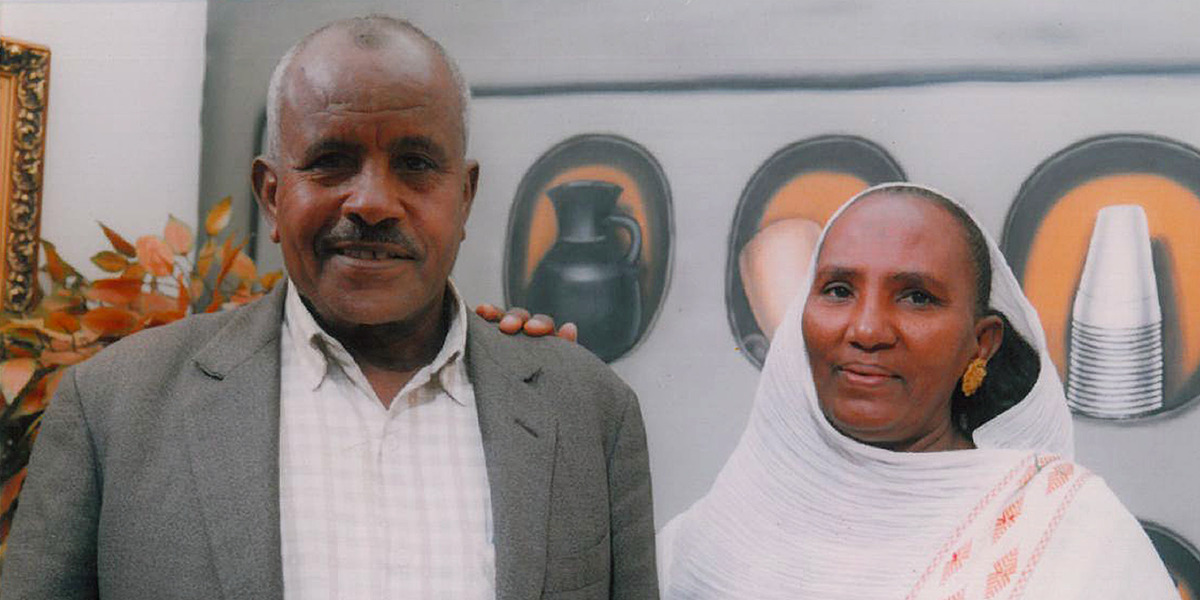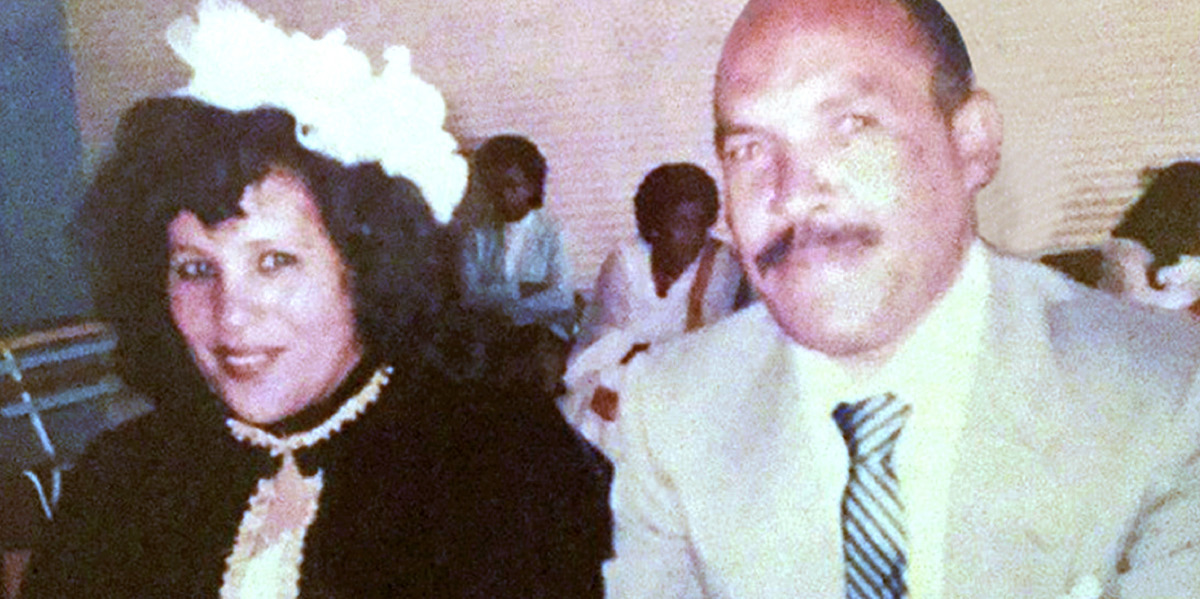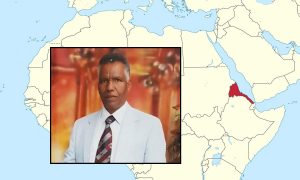Two of Jehovah’s Witnesses, Habtemichael Tesfamariam and Habtemichael Mekonen, died in the Mai Serwa Prison near Asmara in early 2018. Both had been arrested and imprisoned in the summer of 2008 for their religious beliefs and suffered through nearly a decade of harsh prison conditions.
 Â
Â
Habtemichael Tesfamariam with his wife, Leterberhan Bezabih, before his imprisonmentÂ
Mr. Tesfamariam died suddenly at the age of 76 in the Mai Serwa Prison on January 3, 2018. His fellow prisoners believe that he suffered a stroke. Mr. Tesfamariam was born in 1942 in Adi Yakulu, Mendefera, Eritrea. He became one of Jehovah’s Witnesses in 1970 and refused to compromise his faith, despite unjust imprisonment and maltreatment. He is survived by his wife, Leterberhan Bezabih; four sons; and three daughters.
Mr. Mekonen died at the age of 77 in the Mai Serwa Prison on March 6, 2018. His fellow prisoners believe that he died of kidney failure. Mr. Mekonen was born in 1940 in the village of Kudo Felasi in southern Eritrea. He became a Witness well over 55 years ago and, like Mr. Tesfamariam, refused to compromise his faith, even though he was imprisoned without cause and mistreated. He is survived by his wife, Mihret Ellias, as well as a son and a daughter.
Unjust Arrest and Abuse
Mr. Mekonen was at home when authorities arrested him without charges in July 2008, and Mr. Tesfamariam was also at home when he was arrested in August 2008. Both were soon placed in the notorious Meitir Prison Camp, in the desert north of Asmara, where they endured harsh and inhumane conditions. For special punishment, authorities held Witness prisoners from October 2011 through August 2012 in a half-buried building described as the “underground.†There the prisoners suffered through the brutal summer heat without adequate food or water. Some experienced long-term health problems as a result.
In 2017, authorities transferred the Witnesses who were imprisoned at the Meitir Camp to the Mai Serwa Prison, where they are allowed to receive food packages from relatives and to obtain medical treatment when critically ill. The prisoners welcomed the transfer to a less severe prison environment, but Mr. Tesfamariam and Mr. Mekonen never fully recovered from their earlier mistreatment.
Mr. Tesfamariam and Mr. Mekonen are not the first Witnesses to die in an Eritrean prison or shortly after their release. Because of inhumane prison conditions and mistreatment, two other Witnesses died while in prison, and three other Witnesses died soon after being discharged. At least seven Witnesses who were released from prison some years ago still suffer serious health issues that are directly related to their prison experience. Fifty-three Witnesses are still imprisoned in Eritrea for their faith, including Mr. Tesfamariam’s brother, Tareke.
Persecution Constitutes “a Crime Against Humanityâ€
On June 8, 2016, the United Nation’s Human Rights Council published a report based on the findings of the Commission of Inquiry on Human Rights in Eritrea (COIE), which the council established to investigate human rights violations in Eritrea. The COIE urged Eritrea to “respect freedom of religion or belief†and to “put an end to the practice of arbitrary arrest and detention of individuals based on their religious beliefs, in particular followers of specific religious groups, such as Jehovah’s Witnesses, . . . and release immediately and unconditionally all those unlawfully and arbitrarily detained.†The COIE concluded that Eritrea’s persecution of individuals based on their religion constitutes “a crime against humanity.â€
Jehovah’s Witnesses hope that the recent death of Mr. Tesfamariam and of Mr. Mekonen will not go unnoticed by the international community and that these tragedies will move fair-minded Eritrean officials to take action in behalf of those unjustly imprisoned for their faith.
https://www.jw.org/en/news/legal/by-region/eritrea/elderly-jehovahs-witnesses-die-eritrean-prison/Â


